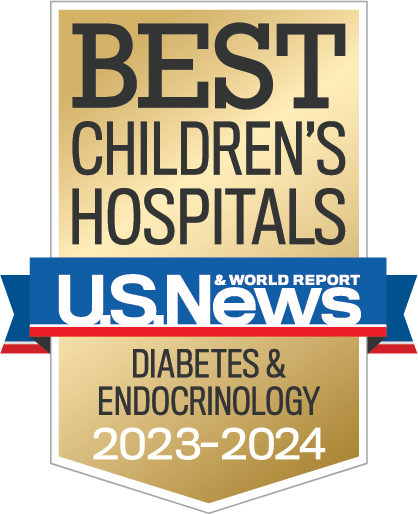- Doctors & Departments
-
Conditions & Advice
- Overview
- Conditions and Symptoms
- Symptom Checker
- Parent Resources
- The Connection Journey
- Calm A Crying Baby
- Sports Articles
- Dosage Tables
- Baby Guide
-
Your Visit
- Overview
- Prepare for Your Visit
- Your Overnight Stay
- Send a Cheer Card
- Family and Patient Resources
- Patient Cost Estimate
- Insurance and Financial Resources
- Online Bill Pay
- Medical Records
- Policies and Procedures
- We Ask Because We Care
Click to find the locations nearest youFind locations by region
See all locations -
Community
- Overview
- Addressing the Youth Mental Health Crisis
- Calendar of Events
- Child Health Advocacy
- Community Health
- Community Partners
- Corporate Relations
- Global Health
- Patient Advocacy
- Patient Stories
- Pediatric Affiliations
- Support Children’s Colorado
- Specialty Outreach Clinics
Your Support Matters
Upcoming Events
Public Meeting: 2024 Community Benefit and Hospital Transformation Program
Tuesday, May 14, 2024Join Children's Hospital Colorado at one of our virtual events to learn...
-
Research & Innovation
- Overview
- Pediatric Clinical Trials
- Q: Pediatric Health Advances
- Discoveries and Milestones
- Training and Internships
- Academic Affiliation
- Investigator Resources
- Funding Opportunities
- Center For Innovation
- Support Our Research
- Research Areas

It starts with a Q:
For the latest cutting-edge research, innovative collaborations and remarkable discoveries in child health, read stories from across all our areas of study in Q: Advances and Answers in Pediatric Health.


Common Questions and Answers: Presumptive Positive Screen for Hypothyroidism
At Children’s Hospital Colorado, we treat the big things, the small things and everything in between.

From a healthcare professional: I received a "presumptive positive screen" for hypothyroidism. What does this mean?
A "presumptive positive" strongly indicates that the infant has congenital hypothyroidism. Specifically, the elevated TSH level and low T4 level identify infants with primary hypothyroidism due to thyroid dysgenesis or thyroid dyshormonogenesis.
Why is congenital hypothyroidism important?
Thyroid hormone is important for growth, development and metabolism. It is also crucial for brain development in the first 2-1/2 to 3 years of life. Infants with congenital hypothyroidism left untreated will likely become mentally retarded.
What tests should I do?
You should check the TSH and total or free T4 level to confirm the diagnosis of congenital hypothyroidism. You should send this sample to a clinical laboratory to obtain an accurate value rather than sending the sample again to the newborn screening lab.
Should I wait for the test results before I start treatment?
No. If you have a presumptive positive result, you should start treatment with thyroid hormone replacement as soon as possible and obtain a telephone consultation with one of the pediatric endocrinologists listed on the screening report you received.
What are other causes of a "presumptive positive screen"?
There is a TSH surge shortly after birth and T4 levels subsequently increase within 1 day. In samples obtained within the first day of life, total T4 levels are normally lower and TSH levels are normally higher (up to 50 IU/L) and will be reported as abnormal on the newborn screen.
What should I do if the screening test result is "borderline"?
You should check the TSH and total or free T4 level to confirm the diagnosis of congenital hypothyroidism. You should send this sample to a clinical laboratory to obtain an accurate value rather than sending the sample again to the newborn screening lab. It is at your discretion whether to start thyroid hormone replacement therapy immediately or wait until the laboratory results return and the diagnosis is confirmed.
Some newborn screens report a low T4 low but a normal TSH level. What does this mean?
There are many causes of a low total T4 level and a normal TSH level.
- Premature infants commonly have lower T4 levels.
- Sick infants may also have lower T4 levels due to sick euthyroid syndrome.
- In TBG deficiency, total T4 levels are low but free T4 levels are normal. Infants with TBG deficiency are normal and do not need to be treated with thyroid hormone.
- In central hypothyroidism, the TSH level is low to normal and both the total and free T4 levels are low. Before starting thyroid hormone replacement therapy for central hypothyroidism, you should consult with a pediatric endocrinologist.
What should I do in the above situation if the T4 is low and the TSH is normal?
You should check the TSH and free T4 levels to distinguish between TBG deficiency and central hypothyroidism. If the free T4 level is low, contact a pediatric endocrinologist for further advice.
Why is there a second newborn screen?
The newborn screening program was initially designed for infants who were discharged after 3 days in the hospital. With shortened nursery stays, there is a risk for missing some cases of hypothyroidism and the second screen was initiated. A recent study of Colorado's newborn screening program indicates that more than 10% of infants with congenital hypothyroidism are missed by the first screen.
Does this baby need to see a pediatric endocrinologist?
If the infant has a confirmed diagnosis of congenital hypothyroidism, consultation with a pediatric endocrinologist is strongly encouraged. A pediatric endocrinologist can provide expert information to the parents about congenital hypothyroidism and the importance of thyroid hormone replacement to prevent mental retardation. Thyroid function will need to be reassessed throughout infancy and thyroid hormone doses will need to be adjusted as the infant grows. All infants with evidence suggesting central hypothyroidism should be evaluated by a pediatric endocrinologist to assess for associated hormonal abnormalities.



 720-777-0123
720-777-0123



